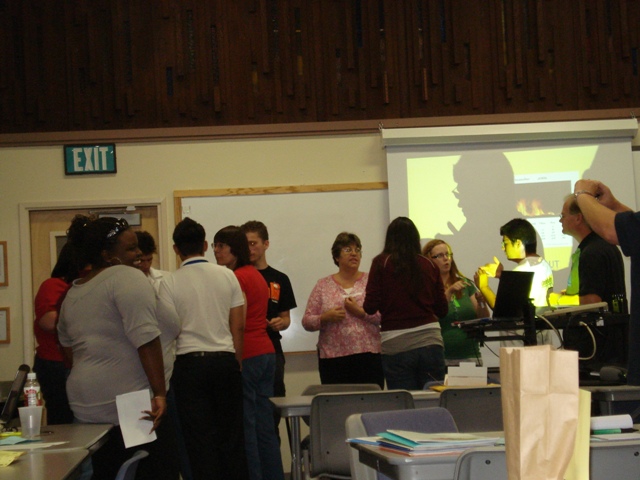
Team Building Skills
Conducting Effective Meetings
Almost everyone has a story about sitting through a boring meeting. To have an effective team, you need to have efficient meetings. There are a few things that can help your meetings be productive:
- Hold meetings only when necessary. Avoid holding a meeting just because the scheduled date has arrived.
- Have clear objectives for each meeting.
- Have an agenda that includes:
- A header showing the title, date, time, place, and purpose
- Topics for discussion
- Time allotments for each topic
- Topic discussion leader or presenter
- Include a neutral facilitator if the topic will arouse emotions.
- Circulate information prior to the meeting. Include the agenda, objectives, location, date, time, and any supplementary information.
- Start and end on time. This sets the tone that you are serious about the meeting and your teammates' time.
- Sit so that members can face each other, either in a circle, semi-circle, oval, or U-shaped pattern.
- Always review the agenda with all participants before beginning the meeting in case an item of importance has been omitted.
- Encourage group discussion and feedback, but avoid negativity.
- Stay focused on the topic of discussion.
- Be a role model by listening actively, showing interest, and contributing.
- Summarize responsibilities, agreements, and tasks before leaving the meeting.
As a meeting participant, you must:
- Arrive on time (even a little early)
- Be prepared
- Stick to the topic and point of discussion
- Be polite and participate
After the meeting:
- Word process the minutes quickly from the meeting and distribute. The minutes should:
- Follow the same outline as the agenda
- Include discussion items, especially decision points or areas for clarification
- Summarize discussions and decisions
- Include problems or road blocks
- Include responsibilities, dates, timelines
- Be produced shortly after the meeting and distributed
- Discuss any problems with appropriate team members.
- Team members must follow up on any assignments or tasks to ensure they are completed on time.
- Effectiveness of the meeting should be reviewed so improvements can be made at the next meeting.
- Include any unfinished business on the next meeting's agenda.
Effective Discussions
In order to have effective meetings, you must have useful discussions. There are a few things you can do to foster productive discussions in your meetings:
- Listen: By actively exploring each other's ideas the team will expand options and generate new ideas. This is preferable to debating or defending ideas.
- Ask for clarification: If you do not understand the topic or someone's logic, ask him or her. Good communication skills are required, of course, but being able to explain ideas in different ways helps clarify them.
- Manage time: Stay on task and keep the meeting to the scheduled time. Remind team members of time allotments so the other portions of the agenda can be adjusted accordingly.
- End the discussion: When nothing new can be gathered from discussion, end it. Then help the team choose a decision.
- Summarize: Restate what has been said to keep the group on task. Follow a summary with a question to see if that is what everyone else understood.
- Check for consensus: Summarize as above, and then restate the decision to see if the team agrees.
- Be a gatekeeper: Encourage all to participate by toning down the dominating speakers and asking for input from the quieter members.
- Contain digression: Do not let others take the discussion off topic or provide long-winded examples or irrelevant points.
- Be aware of human necessities: Take breaks occasionally, and watch for signs of discomfort.
- Be a role model: Model good behavior to set the tone for expected behavior.
Evaluating Meetings
Your team should review meetings regularly. Evaluation will give you feedback in ways to make improvements. Here are some questions you might ask before and after a meeting:
- What is/was the purpose of the meeting? While this seems obvious, not everyone may be aware of the meeting's purpose. That means that not everyone will walk away with the same meaning. It is important to establish the purpose at the beginning of the meeting and verify it at the end.
- What, if anything, is preventing us from achieving our goals? If key players are absent from the meeting, why continue? Perhaps the meetings are too long or too short. Meetings are intended to facilitate and assist in meeting team goals; do not allow your meetings to become barriers.
- What are some suggestions for overcoming the obstacles?
This is the perfect time to solicit input for overcoming barriers. Input from the participants will give you a different perspective and possibly fresh ideas.
If your teammates are uncomfortable discussing these questions as a group, you could provide short questionnaires that they could complete and submit anonymously. Once all surveys are received, if there are common concerns, you must address them.
Next section: Communication

